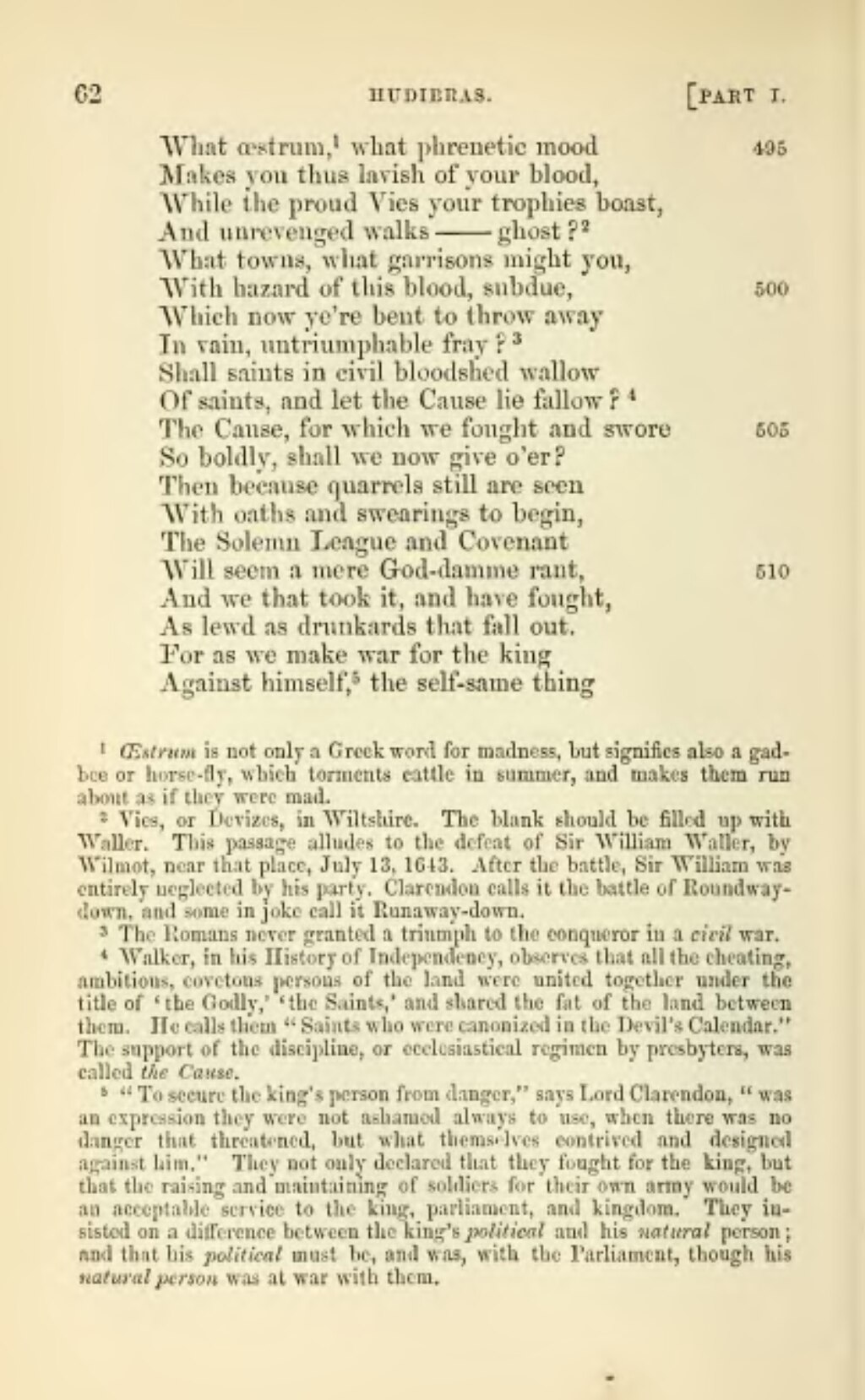62
HUDIBRAS.
[PART I.
"What œstrum,[1] what phrenetic mood 495
Makes you thus lavish of your blood,
While the proud Vies your trophies boast,
And unrevenged walks ghost?[2]
What towns, what garrisons might you,
With hazard of this blood, subdue, 500
Which now ye're bent to throw away
In vain, untriumphable fray?[3]
Shall saints in civil bloodshed wallow
Of saints, and let the Cause lie fallow?[4]
The Cause, for which we fought and swore 505
So boldly, shall we now give o'er?
Then because quarrels still are seen
With oaths and swearings to begin.
The Solemn League and Covenant
Will seem a mere God-damme rant, 510
And we that took it, and have fought.
As lewd as drunkards that fall out.
For as we make war for the king
Against himself,[5] the self-same thing
- ↑ Œstrum is not only a Greek word for madness, but signifies also a gad-bee or horse-fly, which torments cattle in summer, and makes them run about as if they were mad.
- ↑ Vies, or Devizes, in Wiltshire. The blank should be filled up with Waller. This passage alludes to the defeat of Sir William Waller, by Wilmot, near that place, July 13, 1643. After the battle, Sir William was entirely neglected by his party. Clarendon calls it the battle of Roundway-down, and some in joke call it Runaway-down.
- ↑ The Romans never granted a triumph to the conqueror in a civil war.
- ↑ Walker, in his History of Independency, observes that all the cheating, ambitious, covetous persons of the land were united together under the title of 'the Godly,' 'the Saints,' and shared the fat of the land between them. He calls them "Saints who were canonized in the Devil's Calendar." The support of the discipline, or ecclesiastical regimen by presbyters, was called the Cause.
- ↑ "To secure the king's person from danger," says Lord Clarendon, "was an expression they were not ashamed always to use, when there was no danger that threatened, but what themselves contrived and designed against him." They not only declared that they fought for the king, but that the raising and maintaining of soldiers for their own army would be an acceptable service to the king, parliament, and kingdom. They insisted on a difference between the king's political and his natural person; and that his political must be, and was, with the Parliament, though his natural person was at war with them.
